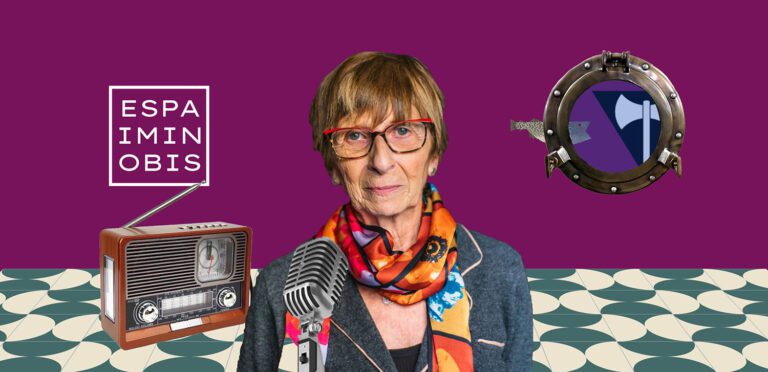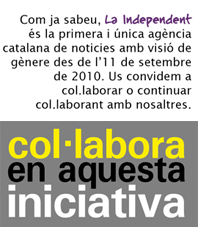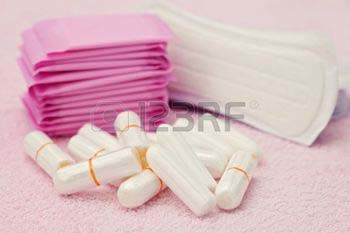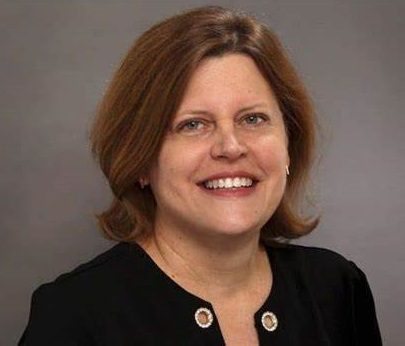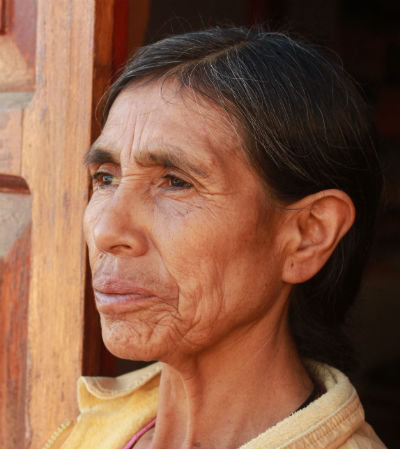
Esperanza Huayama – © Inés Ruiz
“If we are organized we can defend ourselves from people who impose by force orders and abuse”
In the North of Peru, on the border with Ecuador, in the region of Piura, at an altitude of 2500 meters above sea level, lies Huancabamba, known as “Land of Huaringas and Capullanas”. The land is fertile in this area of the country, with high biodiversity, where women are knowledgeable about the properties of medicinal plants and shamanic practices but above all, they are knowledgeable about the practice of political and social participation that has been bequeathed their ancestras, the Capullanas, a pre-Inca culture, where women assumed political, economic and social power in their communities.
The Independent spoke with the indigenous leader, Esperanza Huayama, who in recent years has chaired the Committee to Defense Human Rights of Women Sterilized from Huancabamba (CDMEHBA), in order to claim Truth, Justice and Reparation for hundreds thousands of women like her, who have been sterilized against their will during the Alberto Fujimori’s government, and after 18 years, they are still waiting for justice.
Esperanza Huayama has been elected President of the most representative women’s organization in her province, the Women’s Association of the Huancabamba Province (AMHBA) that promotes the women’s Human Rights, improving their social, political and economic condition, and “good living” of their families and communities.
You participate in AMHBA over 20 years. In January this year you have celebrated the twenty-second anniversary of the organization and also you have made the election of a new Board, where you were elected president. Is it a challenge to chair an organization like AMHBA?
It means a great responsibility for all women who are part of the new Board. It is a great challenge for us, because we have to continue working for the women’s and girls’ human rights, but we also have to keep working on improving and functioning of agro center we have in agreement with the IAMAMC, an allied organization, where we have an ecological orchard, a farm-School guinea pigs and rabbits, a fish farm, the Andean women’s house with its counseling on human rights, sexual and reproductive health, mental health, a kindergarten, a small shelter and a battered women’s shelter.
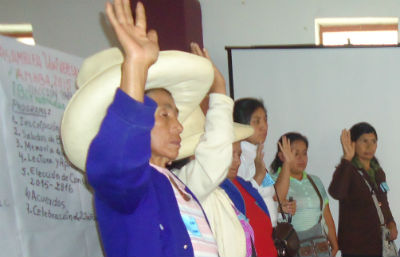
Esperanza and the members of the Board – © IAMAMC
What organization of women means for you?
The organization of women is important, above all, to enforce our human rights and collectively contribute to development and good living of our communities. If we are organized we can defend ourselves from people who impose by force orders and abuse. The peasant, indigenous and andean’s women from Peru have been abused and discriminated because of racism, exploitation and neglect of the authorities. It is time to say enough.
In January 2014, a resolution frustrated the hopes of women who were affected by the sterilizations. The Provincial Prosecutor of Lima decided to close the investigations against Fujimori and his former ministers, arguing that there wasn’t a state policy. Now that you assume the presidency of the AMHBA, how will continue the work of the Committee to Defense Human Rights of Women Sterilized?
The AMHBA continue with this fight, because many of our members were forcibly sterilized. I myself have been a victim of forced sterilization. In early 2013 women sterilized in Huancabamba formed the Committee to Defend our rights, and to make our voice heard. The existence of this committee is a tribute to Giulia Tamayo León, who was the great defender of sterilized women. The Committee has 204 women enumerated, but this number is higher, because in one of the most populated districts of our province as many sterilizations took place between 1996 and 2000..
How many women are victims of forced sterilization in AMBHA?
At present, in AMHBA more than 50% of partners are victims of coercive sterilization, It is for this reason that our organization will continue to assume their defense by Truth, Justice and Reparation. As president I plan to develop a great Lifelong Learning Programme and Economic Production and Food Sovereignty, to tackle poverty, inequality and violence that mainly affects women sterilized.
Sure you’re informed that in India have also been cases of forced sterilization aimed at women in rural areas and very poor
Yes, it is a painful reality to know that Indian women were sterilized are those found in extreme poverty, without protection of their human rights, as in the case of Peru, are women living in rural areas. This situation shows that there is an international interest to control our bodies, those of the poorest, of which we are considered indigenous, because they think our life is worthless. Therefore, It is very important to the leadership, empowerment and organization of women, to make our voices heard and to enforce our rights.
You are coordinating in Europe with women and organizations through the Collective Initiative for Human Rights Sterilized Women to undertake awareness, make historical memory and awareness of what happened to women in Peru, how do you assess this support?
We appreciate the solidarity of all women and organizations that are supporting us in Europe, especially to fellow IAMAMC who have made possible this action. We encourage them to continue to support our cause for Truth, Justice and Reparation, for our sexual and reproductive rights are to be guaranteed, and to work for sterilized women can achieve economic empowerment.
What economic initiatives can be supported?
For example, we want to undertake economic initiatives to publicize the properties of medicinal plants of our land. We also want to promote native crops like pashul, a tree that produces a fruit rich in protein and very little known about it. Our intention is to promote ecological and spiritual tourism, to know the mountains, the healing gaps in Huaringas and their properties. All this means development with dignity and autonomy for women, but also to protect our environment.
This is add synergies between women transnationally …
Yes, add between women here and elsewhere. We need to come together and learn that, despite the distances and difficulties to communicate, it is possible to make a change. In our communities always wait with sisterhood to all European women and women from all parts of the planet, who want to share their support for their sisters in Huancabamba and Peru.
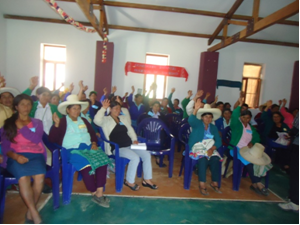
Members of AMHBA – © IAMAMC

